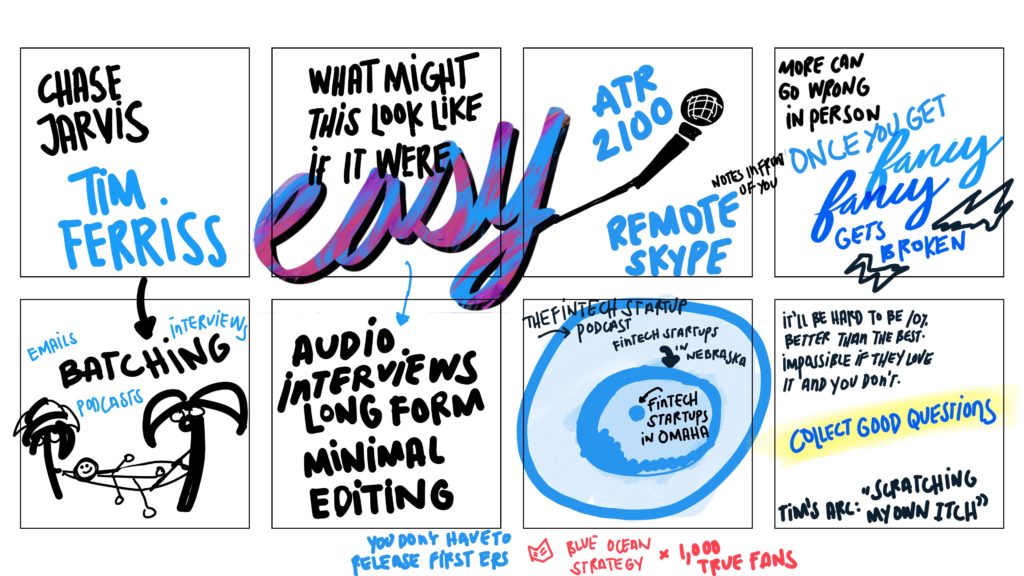One of my favorite audio duos got together again. Chase Jarvis interviewed Tim Ferriss for Creative Live’s podcast week. As always, lots of great insight into creating a successful podcast.
If you’ve listened to some of their earlier episodes together on each other’s podcasts, you’ll hear similar themes. It’s interesting to take this broader look at Tim Ferriss’s podcast and how it’s grown. It also helps highlight the things that Tim really credits with making it work.
- First things first, aim to make it sustainable and consistent: There are tens of thousands of new podcasts launched each week. How many will get to episode 50? How many will even get to episode 10? When Tim started, he knew the power of consistency through the success of his blog.
- Get there by making it easy: Tim edited the early episodes by himself in GarageBand. It’s not the best tool for editing conversations but it’s more than enough to do the trick. He knew he didn’t want to do it forever and now a few years later he’s able to just record, add a few notes, then share it with his team (of two) for taking care of everything else. He made systems for everything so he could focus on what was important.
- Quality content is still the best SEO: It probably always will be. He’s been able to focus on being a good interviewer because he doesn’t have to focus energy on all the recording logistics anymore. And he knew that being a good interviewer was the most important part of creating quality podcast content. A good interviewer can get good stories from anyone. A bad interviewer can make the most interesting person tune out after the first few words are spoken.
- Broad title, specific audience: Your title will act as a bit of an affirmation. You’ll grow into the full subject matter that your title might cover, with an audience to match. But when you start, start specific. His example topic is FinTech startups in Omaha. Then you expand to covering regional FinTech startups then national then just startups in general.
- If you aren’t passionate about something, you have an uphill battle if your tactic is to be better than the best in that field: They have a head start. They will probably work as hard as you. And they’re motivated to continue working that hard for longer because they enjoy the topic. There’s too many other opportunities in the world to just keep grinding through something you hate.
Here are a couple other posts I’ve written about them:
